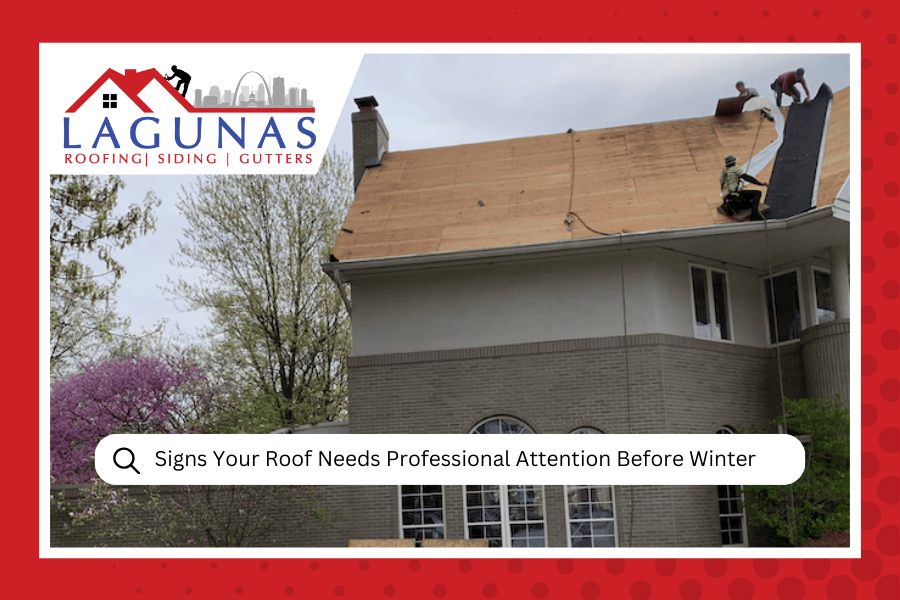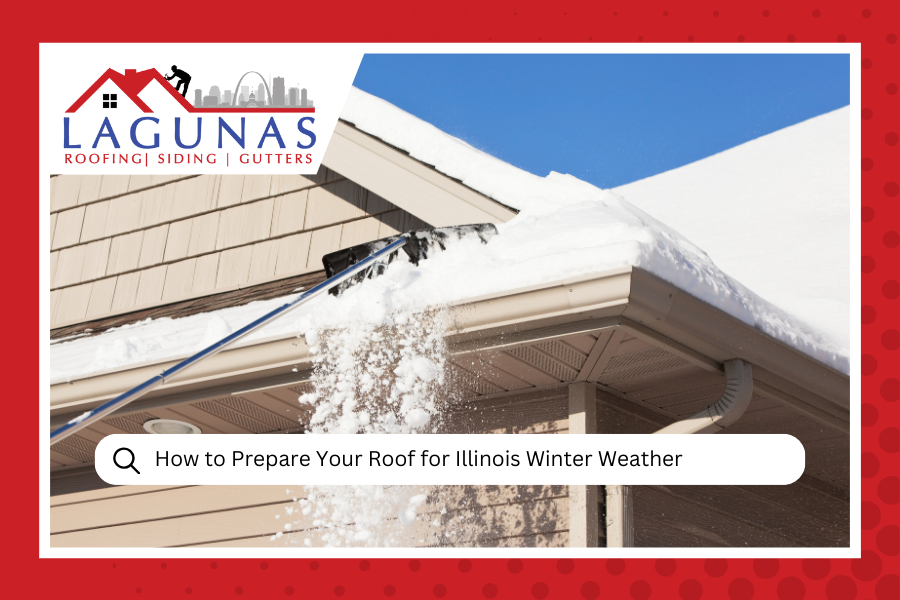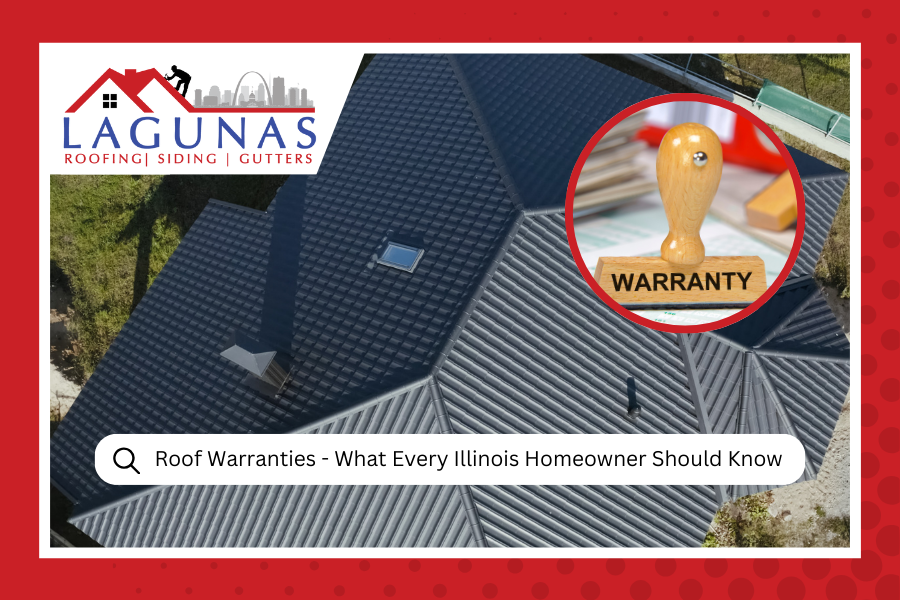
Complete Guide to Roof Warranties - What Every Illinois Homeowner Should Know
Jump To:
So you've got a new roof coming, or maybe you're dealing with some roof repair issues and wondering about warranty coverage. Either way, understanding roof warranties can save you serious headaches and money down the road. Let's break down everything you need to know about warranties in plain English, no fancy legal jargon.
What Are Roof Warranties Anyway?
Think of roof warranties like insurance for your roof work. They're promises from manufacturers and contractors that if something goes wrong with your roof within a certain time frame, they'll fix it or replace it without charging you. Pretty straightforward, right?
But here's where it gets interesting. Not all warranties are created equal, and there are actually different types that cover different things. Some protect against defective materials, others cover installation mistakes, and some even combine both.
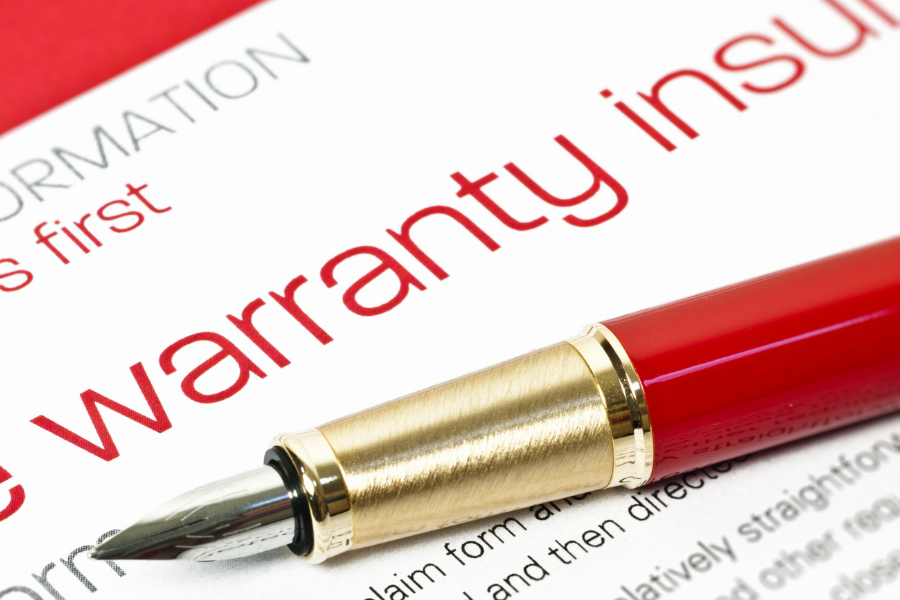
The Two Main Types of Roof Warranties
Material Warranties (Manufacturer's Warranties)
This is coverage from the company that made your roofing materials. If your shingles start cracking early, your flashing fails, or other components break down before they should, the manufacturer steps up to replace them.
Material warranties typically cover:
- Defective shingles that fail prematurely
- Flashing and underlayment issues
- Other roofing components that don't perform as expected
The catch? Most manufacturer warranties only cover the cost of replacement materials, not the labor to install them. So you might get free shingles, but you'll still pay someone to put them up.
Workmanship Warranties (Contractor's Warranties)
This is where your roofing contractor promises their work is solid. If they mess up the installation and your roof starts leaking because of poor workmanship, they'll come back and fix it at no charge.
Workmanship warranties cover:
- Installation errors
- Leaks caused by poor workmanship
- Problems with flashing installation
- Issues with proper shingle alignment
The best contractors offer both labor and materials coverage during their warranty period, which gives you complete peace of mind.
How Long Do Roof Warranties Last?
Warranty periods vary quite a bit depending on the type and manufacturer. Here's what you can typically expect:
| Material Type | Warranty Length | Coverage Details |
|---|---|---|
| Basic Asphalt Shingles | 20-30 years | Material defects only |
| Architectural Shingles | 30-50 years | Enhanced material protection |
| Premium Shingles | Lifetime coverage | Comprehensive material warranty |
| Metal Roofing | 25-50 years | Paint, structure, perforation |
| Workmanship (Quality Contractors) | 5-25 years | Installation and labor coverage |
At Lagunas Roofing, we believe in our work so much that we offer extended workmanship warranties because we know our installations are built to last.
Understanding Warranty Coverage: What's Protected and What's Not
Let's get real about what warranties actually cover because this is where people often get surprised.
What's Typically Covered
- Manufacturing defects in materials
- Premature failure due to normal wear
- Installation errors (with workmanship warranties)
- Structural issues from poor installation
What's Usually NOT Covered
- Storm damage from wind, hail, or falling trees
- Normal wear and tear after the warranty period
- Damage from lack of maintenance
- Issues caused by walking on the roof
- Problems from other contractors' work
- Act of nature events like earthquakes or floods
The key thing to remember is that warranties protect against defects and failures, not damage from external forces. That's what your homeowner's insurance is for.
Warranty Claim Process
Document the Issue
Take photos and gather evidence of the problem
Review Your Warranty
Check what type of coverage applies to your situation
Contact Provider
Reach out to manufacturer or contractor as appropriate
Schedule Inspection
Allow professional assessment of the warranty claim
Special Warranty Considerations for Illinois Homeowners
Living in Illinois means dealing with some pretty intense weather. From harsh winters to severe storms, our roofs take a beating. Here's what Illinois homeowners should pay extra attention to:
Weather-Related Warranty Exclusions
Most warranties exclude damage from severe weather events. This includes:
- Hail damage (very common in Illinois)
- Wind damage from storms
- Ice dam damage from winter weather
- Damage from snow load
While warranties don't cover weather damage, maintaining your roof properly can help prevent issues that might void your warranty coverage.
The Importance of Professional Installation
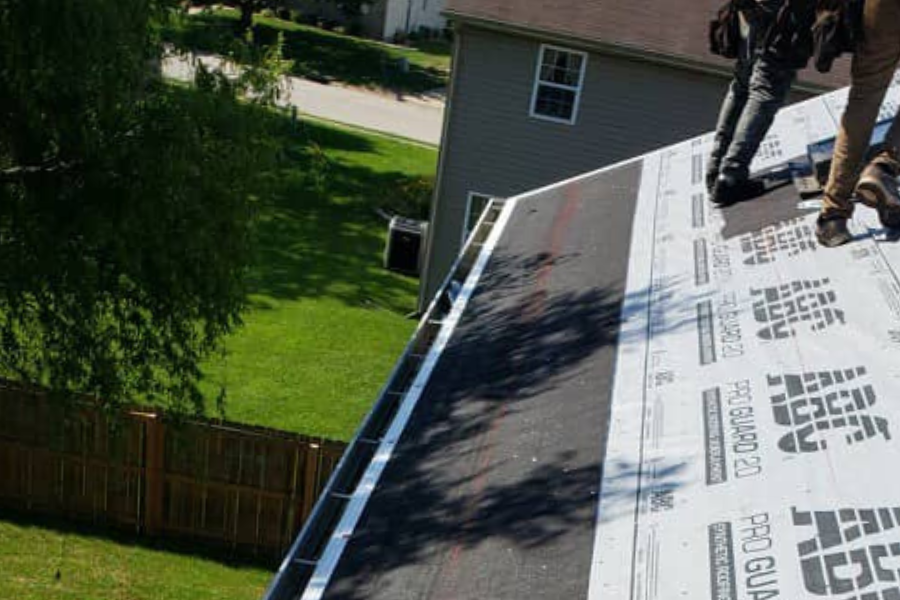
Illinois building codes are specific, and proper installation is crucial for warranty validity. The International Building Code sets standards that contractors must follow. Using a licensed contractor like Lagunas Roofing ensures your installation meets all requirements and won't void your manufacturer's warranty.
Poor installation can actually void your material warranty, leaving you with no protection at all. That's why choosing the right contractor is so important.
Getting the Most from Your Roof Warranty
Keep Detailed Records
- Save all receipts and documentation
- Take photos of the completed installation
- Keep manufacturer warranty paperwork organized
- Document any maintenance you perform
Perform Regular Maintenance
- Schedule annual inspections
- Clean gutters regularly
- Remove debris promptly
- Address minor issues quickly
Proper maintenance doesn't just extend your roof's lifespan , it also keeps your warranty valid.
Know Your Warranty Transfer Rights
If you sell your home, some warranties can transfer to the new owner. This can actually be a selling point and add value to your property. Make sure you understand the transfer process and any associated fees.
Red Flags: Warranty Issues to Watch Out For
Not all warranty offers are legitimate. Here are some warning signs:
Unrealistic Warranty Claims
- Promises of "lifetime" coverage with no conditions
- Warranties significantly longer than industry standards
- Coverage that sounds too good to be true
Vague Warranty Language
- Unclear coverage terms
- No specific time frames mentioned
- Missing contact information for claims
Storm Chaser Warranties
After major storms, out-of-town contractors often make big warranty promises they can't keep. These "storm chasers" disappear after collecting payment, leaving you with worthless warranty papers.
Always choose established local contractors who'll be around to honor their commitments.
Get Your Warranty-Protected Roof ReplacementMaking Warranty Claims: The Process
When you need to use your warranty, here's typically how it works:
For Material Warranty Claims
- Contact the manufacturer directly
- Provide proof of purchase and installation
- Document the defect with photos
- Follow their inspection process
- Work with approved contractors for repairs
For Workmanship Warranty Claims
- Contact your original contractor first
- Describe the issue in detail
- Allow for inspection of the problem
- Give them opportunity to make repairs
- Document everything throughout the process
Questions to Ask Before Signing
Before you commit to any roofing project, make sure you understand the warranty completely:
- What specific materials and work are covered?
- How long does each type of coverage last?
- What could void the warranty?
- Who do I contact for different types of claims?
- Are there any maintenance requirements?
- Does the warranty transfer if I sell my home?
- What documentation do I need to keep?
Don't be shy about asking these questions. Any reputable contractor will be happy to explain their warranty coverage in detail.
Why Choose Lagunas Roofing for Your Warranty Protection
At Lagunas Roofing, we understand that a warranty is only as good as the company standing behind it. That's why we've been serving the Illinois area since 2021, building a reputation for quality work and reliable service.
Our approach to warranties is simple: we use high-quality materials from trusted manufacturers and install them properly the first time. We work with major manufacturers to ensure you get the best possible material coverage, and we back our installation work with comprehensive workmanship warranties.
When you work with us, you're not just getting a roof - you're getting a relationship with a local company that'll be here when you need us. We've helped homeowners with everything from insurance claims to understanding their warranty coverage, and we'll be here for you too.
The Bottom Line on Roof Warranties
Warranties are an important protection for your roofing investment, but they're not a substitute for choosing quality materials and professional installation. The best warranty in the world won't help if it comes from a fly-by-night contractor who disappears after the job.
Focus on finding a reputable local contractor who uses quality materials and offers solid warranty coverage. Make sure you understand exactly what's covered, what's not, and what you need to do to keep your warranty valid.
Remember, staying informed about roof maintenance and addressing issues early is key to getting the most from any warranty coverage.
Ready to get started on your roofing project with comprehensive warranty protection? Contact us today for a free consultation and detailed information about warranty coverage for your specific project.
Frequently Asked Questions
How long should I expect my roof warranty to last?
Material warranties typically range from 20-50 years depending on the product, while workmanship warranties from quality contractors usually last 5-25 years. At Lagunas Roofing, we offer extended workmanship warranties because we stand behind our installation quality.
Will my warranty cover storm damage in Illinois?
Most warranties exclude storm damage like hail, wind, or falling debris. However, they do cover manufacturing defects and installation issues. Storm damage is typically covered by your homeowner's insurance, not your roof warranty.
What happens to my warranty if I sell my house?
Many manufacturer warranties can transfer to new homeowners, though some charge transfer fees. Workmanship warranties may or may not transfer depending on the contractor's policy. Always check transfer terms before purchasing.
How do I keep my roof warranty valid?
Maintain detailed records, perform regular maintenance, use qualified contractors for any repairs, and follow manufacturer guidelines. Neglecting maintenance or using unqualified contractors can void your warranty coverage.


